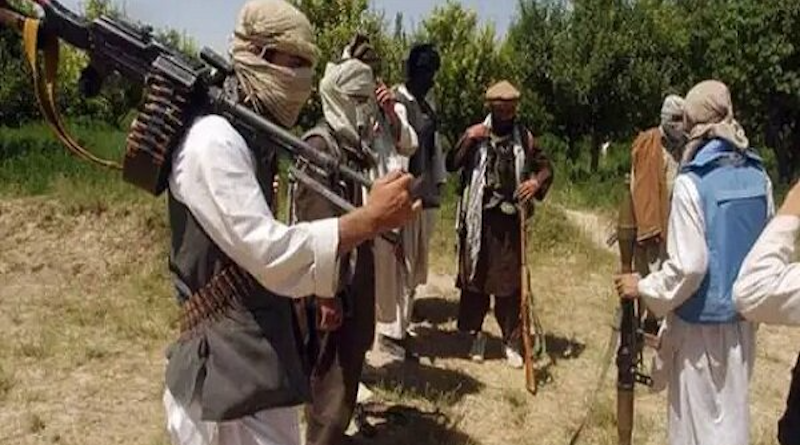TTP’s Plan To Project Presence In Pakistan – OpEd
By Dr. Sahibzada Muhammad Usman
Within the complex realm of geopolitical alliances and dynamic loyalties, it might be argued that no other area exhibits as much volatility as South Asia. Within the complex dynamics of international relations, the Tehrik-e-Taliban Pakistan (TTP) has emerged as a group that has garnered significant attention from Pakistan.
In light of recent developments, there has been a growing focus on the attempts made by the TTP to establish a substantial presence in Pakistan. It is essential to undertake an analysis of the several factors involved, including propaganda, cross-border assaults, and the international dynamics that facilitate the TTP.
In the contemporary period characterized by the prevalence of social media and digital communication, the efficacy of propaganda has undergone a significant transformation, becoming more influential than ever before. The TTP, in accordance with this prevailing pattern, has lately disseminated a video that has been uncovered as a weapon of propaganda. Scholars and researchers have identified that the video has manipulated visuals and surroundings, meticulously constructed to convey a story that is advantageous to TTP. Such tactics are not only about building the morale of TTP’s supporters but are also aimed at confusing the general public and sowing doubts among Pakistan’s allies.
The TTP’s association with Afghanistan isn’t new, and their bases in the country have been a well-known fact internationally. These bases serve as operational and planning hubs, facilitating not just ideological indoctrination but also training for military tactics and strategies. Afghanistan’s mountainous terrain and historically porous borders have provided the ideal environment for such bases, away from the prying eyes of international intelligence agencies. Interestingly, while the TTP projects a desire to establish a foothold in Pakistan, many of its leaders have met their end in Afghanistan. Prominent figures like Umar Khalid Khurasani and Mullah Fazllulah, among other Taliban leaders, have been killed in the country. Such events, which have been acknowledged by the TTP leadership themselves, further solidify the link between the TTP and their operations based in Afghanistan.
Noor Wali Mehsood, the current commander of the TTP, has not shied away from the media spotlight. He has been giving interviews, and notably, these engagements have been conducted in Afghanistan. Such brazen media interactions, done without fear of reprisals, underscore the safety and sanctuary the TTP enjoys within Afghan borders. One of the most tangible pieces of evidence showcasing the TTP’s activities are the regular interceptions of their Tashkeels – or organized units – at the Pakistan-Afghanistan international border. These interceptions, widely reported by the media, reveal the frequent movement of TTP militants between the two countries.
The TTP has been quite overt about its involvement in cross-border attacks. These attacks, targeted at Pakistani interests, have been openly claimed by the TTP, emphasizing their audacity and intent.
These assaults not only fulfil their ideological objectives but also function as a demonstration of power and proficiency. In addition to its conspicuous activities, the TTP also has a clandestine aspect. Throughout history, there have been instances when they have inaccurately claimed responsibility for several acts of terrorism. The dissemination of false assertions serves to exacerbate the complexity associated with comprehending and addressing the genuine intentions and capabilities of the TTP, which may be driven by objectives such as instilling fear, seeking recognition, or generating confusion.
The connection between the TTP’s actions and Al-Qaeda is a matter of significant concern. The aforementioned disconcerting alliance was recently emphasized in a report published by the United Nations Security Council (UNSC) in August 2023. The study disclosed that Al-Qaeda, an extremist organization, has established secure locations in Afghanistan and is actively engaging in cooperation with entities such as the TTP. The hyperlink in question presents a substantial threat not only to Pakistan but also to security on a regional and global scale.
The recent efforts at reconciliation with the TTP have attracted significant attention, notably the gatherings that took place in Afghanistan between the TTP leadership and Pakistani ex-tribal chiefs. The aforementioned exchanges, which have garnered significant global coverage, provide compelling evidence of the Taliban’s secure sanctuary inside the borders of Afghanistan. The occurrence of these discussions taking place inside the boundaries of Afghanistan highlights the group’s capacity to function without facing consequences within the nation. The operations of the TTP have resulted in severe repercussions for both Pakistan and Afghanistan, unequivocally demonstrating that this terrorist group poses a significant threat to the whole region. The dissemination of propaganda videos and dissemination of false claims by some actors contributes to the exacerbation of the plight experienced by the Afghan populace and undermines the precarious state of stability in the area.
Pakistan has shown significant dedication and commitment in its relentless battle against terrorism, a commendable effort that has garnered international recognition. The nation has shown a resolute dedication to establishing the “authority of the state,” hence eliminating any opportunity for terrorist organizations to flourish inside its territorial confines. The unwavering commitment to combat extremism and terrorism is a fundamental pillar of Pakistan’s national security strategy. In contrast to previous times, Pakistan has successfully eradicated the notion of “no-go areas” inside its national boundaries. The government has successfully implemented a comprehensive administrative structure in the ex-Tribal Districts, formerly seen as lawless and outside the jurisdiction of the state, via substantial endeavors.
The TTP’s Al-Qaeda ties, activities in Afghanistan, and propaganda provide a multidimensional security threat to Pakistan and Afghanistan. Pakistan’s consistent commitment to fighting terrorism, global cooperation, and efforts to stabilize Afghanistan will help resolve this difficult problem and restore peace.

